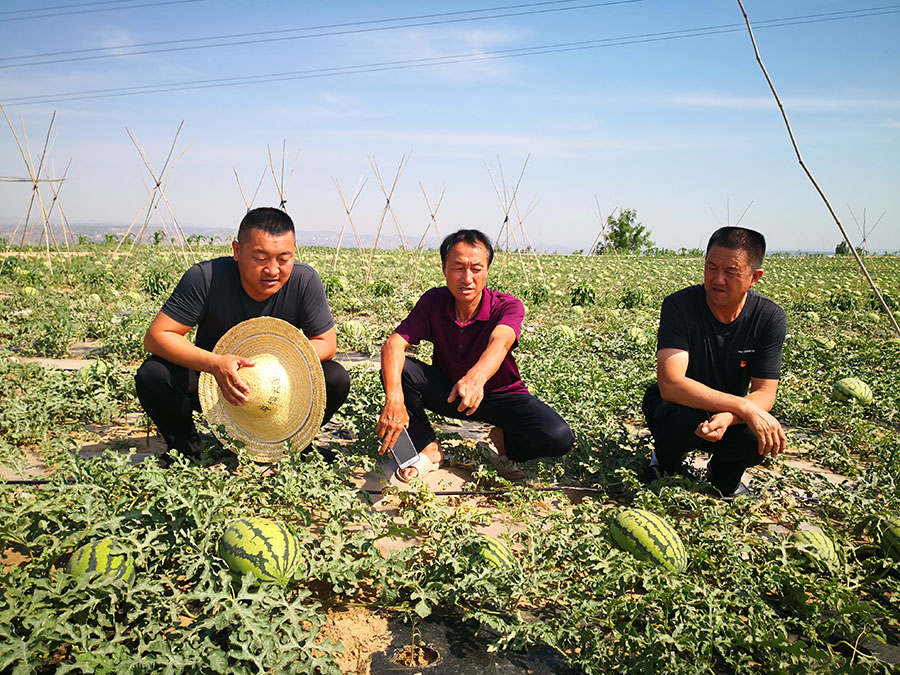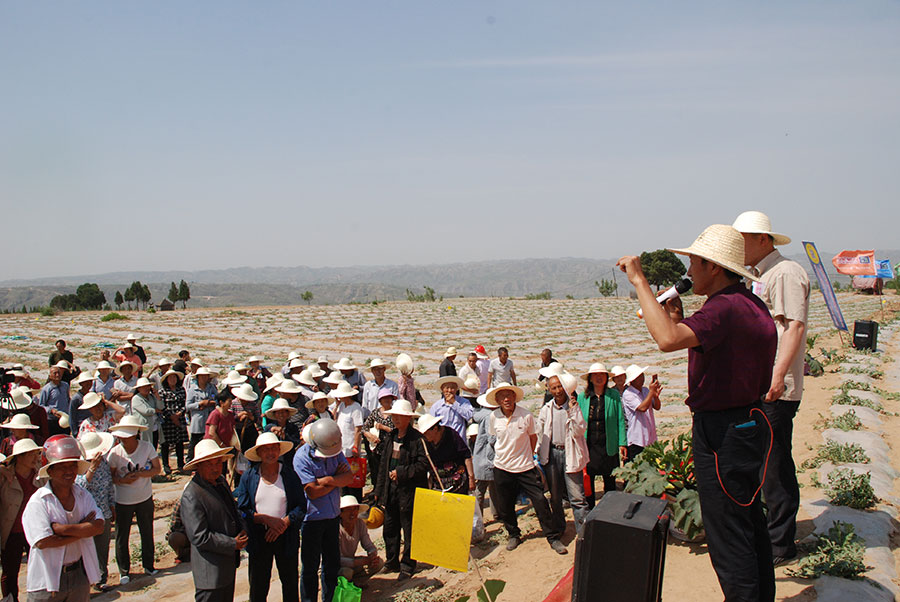
From the People's Daily app.
And this is Story in the Story.
Farmers have turned to WeChat groups to give other farmers specialized courses and advice on improving planting techniques and to seek channels to bring pesticide-free agricultural products to cities.
Droughts and a lack of advanced agricultural technology services have restricted development and incomes.
Data from the Ministry of Commerce shows that online retail sales in rural China reached $204 billion last year, up 30 percent year-on-year, providing jobs for 28 million farmers.
Farmers can now sell chicken and organic vegetables to customers in the city directly, thanks to WeChat platforms.
The ministry has also stressed that the government will take measures to support the development of "small rural households,” or those with arable land less than 0.67 hectares.
According to the third national agricultural census released by the National Bureau of Statistics in 2017, there are 210 million in this category, accounting for about 90 percent of all rural households.
Today’s Story in the Story looks at how farmers are turning to WeChat groups for their fellow farmers and to improve output and their annual incomes.

Liu Xiao (middle) discusses watermelon cultivation with local officials in Liulin county, Shanxi province. (Photo: China Daily)
Farmer Liu Xiao has become much busier since he founded his "Straw Hat University.”
Liu, 56, is famous among fellow farmers in Liulin County, in northern China's Shanxi Province, for his independently researched drought-resistant farming techniques.
"Straw Hat University is just the nickname of a WeChat group," he said.
"I set up the WeChat group to give technical guidance to farmers attending the launch ceremony of a planting base for organic watermelons and tomatoes. More than 400 farmers present, each wearing a straw hat, joined in the group, hence the name."
"Every evening, I will spend two or three hours in the WeChat group, hoping to help the farmers learn how to plant scientifically instead of only depending on experience," Liu said. "I also believe that they can achieve the transformation from poverty to wealth through hard work."
Liu was born in an extremely poor family in Liulin, and contracted rickets, a bone disease, when he was a child.
Despite good grades at school, his disability prevented him from going to college.
In 1983, he read an article in a local newspaper on plastic mulching.
He borrowed money to buy plastic film and watermelon seeds and started cultivating his 800 square meter field.
Almost all of his relatives and friends advised him to change his mind.
"They told me that nobody could successfully grow watermelons on the dry land," he said.
His watermelon seedlings grew from the mulch after a drought, and he welcomed a bumper harvest three months later.
"I still remember selling 800 kilograms of watermelons for 1,600 yuan, which was really a large sum of money at that time," Liu said. "I counted the money over and over again with tears and smiles."

Liu (second from right) gives a lesson to members of "Straw Hat University" in Liulin. (Photo: China Daily)
He expanded the planting area the next year and became known as the “Watermelon King.”
"It was plastic film that saved my life and made me believe in the power of technology," Liu said.
"Since then, I have spent all my energy on the study of agricultural development in arid areas, hoping to change the history of relying on the weather."
He said the key point is mastering local precipitation patterns and crops' water consumption.
"The plastic film helps collect and retain rain, which is quite useful during the dry season," he said.
His technology is now widely used, and Liu has been busy providing technical guidance around the country.
"In fact, it is also a good opportunity for me to increase experience and enrich research results," he said.
WeChat has become another essential tool for Liu to pass on his techniques, from selecting seeds and plastic films to preventing insect-borne diseases.
The group has also become a platform where members can find and offer help when necessary, such as donating money to poverty-stricken families and helping elderly farmers carry and sell watermelons.
Moved by Liu's dedication, Yuan Kangping, a professor at Zhejiang University, volunteered to be a teacher for Straw Hat University.
Whenever he has spare time, Yuan gives instruction on agricultural techniques and answers questions from the group.
"I feel quite happy to see the great cohesion in the group," Yuan said, and added, "it is a great encouragement for me to see that the group has gained wide public recognition."
(Produced by Nancy Yan Xu, Lance Crayon, Brian Lowe and Paris Yelu Xu. Music by: bensound.com. Text from China Daily.)


